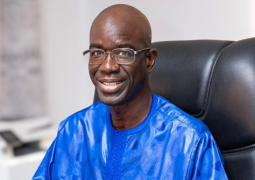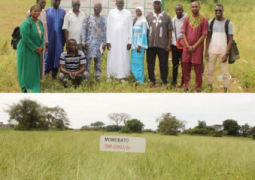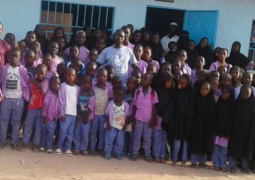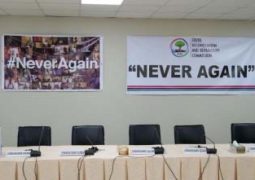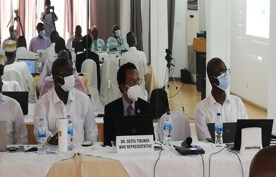
The two-day session accords the two institutions to review outcomes, realign its 2022-2023 work plan priorities, identify priorities for the 2024/2025 budget programme and to plan for the future.
The forum brought together directors at the Ministry, Chief Executive Officers (CEOs) of various hospitals in the country as well as the WHO country team.
Addressing the opening, Dr. Desta Tiruneh, WHO representative in The Gambia, reminded that in May this year, the World Health Assembly approved the extension of the General Programme of Work of WHO, which spans from 2019/2023 to 2025.
This, he said, was based on the fact that during the two years of the pandemic, they were not able to make progress in different programme areas.
"So it was agreed by the World Health Assembly to extend by two years - meaning 2024/25 to be all included in the current programme of work. At the same time, during the assembly, it was agreed that the organization has always been in difficulty in supporting member-states, because the funding coming is mostly voluntary fund being given by different donors either by government or philanthropists, who might be specifically donating the money to be used for few countries or certain programmes."
Based on that, Dr. Tiruneh clarified that the organisation wouldn't have the green light to support countries outside that bracket.
Understanding that challenge, he added, the assembly has agreed to raise its assessed contribution, a flexible contribution coming from member states to 50%.
WHO country rep indicated that it was agreed that 2022/23 biennium which the organization is currently implementing to be used as a basis covering the 2024/25 biennium period to be raised by 20%.
For his part, Muhammed Lamin Jaiteh, permanent secretary at the Ministry of Health, said the technical meeting would avail them the opportunity to critically look at the programme budget from 2024 to 2025.
The session, he said, is very important and timely in the sense that, it would avail them the opportunity to prioritise WHO's interventions in the country as well as national and the Ministry’s sector priorities.
"This is an opportunity that we can use to refocus our attention on the achievements registered over the previous years, but also to learn lessons and plan ahead for the ensuing years."
PS Jaiteh thanked WHO for their effort and for standing by the Ministry, recalling that the immediate past years have been challenging times amid the corona virus pandemic especially in ensuring service in the country.
"But without the technical and financial support from partners, it would have been difficult for the country to achieve some of its objectives."


